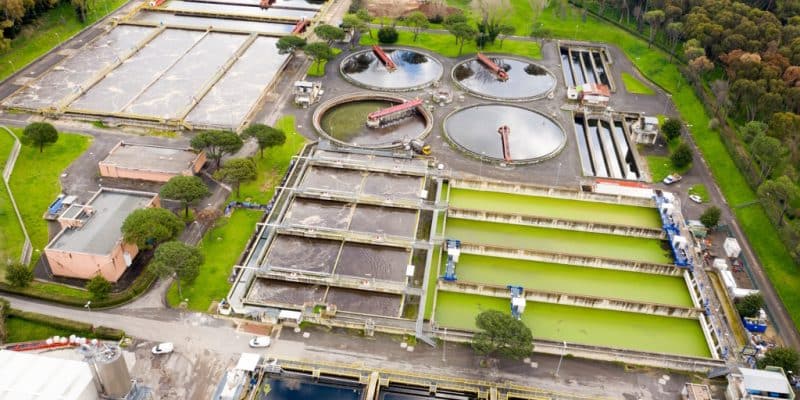The municipal authorities of Cape Town in the south-west of South Africa will spend 18.5 billion South African rand (almost $959 million) on water and sanitation projects between now and 2026. This budget was approved on 31 May 2023 at the City Council meeting in Cape Town.
The City of Cape Town wants to improve access to drinking water and sanitation by 2026. To achieve this more effectively, the authorities in this municipality of almost 4.9 million people plan to allocate 18.5 billion South African rand (around $959 million) to developing this sector over the next four years. 4.3 billion South African rand ($223 million) will be released in the 2023/2024 financial year, which is due to start on 1 July 2023.
At least 38 million rand (nearly $2 million) will be used to finance the installation of new taps and toilets in Cape Town’s informal settlements.
Recharging aquifers
Between now and 2024, the Cape Town municipality also plans to inject 604 million rand (nearly 31.4 million dollars) into the New Water Programme (NWP), particularly in its groundwater recharge component, which is important for the sustainable management of water resources. The aquifers in question are Cape Flats, Atlantis and the Table Mountain group.
“The city will also endeavour to implement new water projects, including desalination, aquifer exploitation and the reuse of treated wastewater. The aim is to produce an additional 300,000 m3 of water every day by 2030”, say the Cape Town authorities.
Upgrading wastewater treatment plants
The 2024/2025 period will be just as crucial, with the launch of projects to extend and modernise several wastewater treatment plants in Cape Town. At least 1.8 billion rand (over 93 million dollars) will be spent on these projects. Among the treatment plants to benefit is the Potsdam plant, whose capacity will be increased from 47,000 m3 per day to 100,000 m3 per day. The Zandvliet plant, whose capacity will be increased to 90,000 m3 per day, compared with the current 72,000 m3. The Athlone plant, whose capacity will be increased by 50,000 m3 per day, currently estimated at 105,000 m3 per day.
Read also –
Cape Town is also announcing the extension and modernisation of the Bellville and Macassar wastewater treatment plants. The capacity of the Macassar plant is to be increased to 70,000 m3 per day from the current 34,000 m3.
Improving wastewater drainage
Between 2024 and 2025, there are also plans to renovate around ten sewers in Cape Town. “Our programme to improve the safety of pumping stations includes the addition of reinforced steel doors, concrete walls, video surveillance cameras and security personnel, among other things, at 38 sites,” says the municipality. The various works will cost 123 million South African rand, or around 6.4 million dollars.
In order to strengthen Cape Town’s drainage system, 100 km of sewers will also be replaced, notably in the Brackenfell Industrial, Stikland Industrial, Kraaifontein Industrial, Bellville, Welgemoed, Bergvliet, Muizenberg, Lotus River, Constantia, Tokai, Wynberg, Broadlands, Strand, Kuils River, Mission Grounds/Sir Lowry’s Pass areas, Tuscany Glen, Eerste River South, Kraaifontein, Eversdal, Brackenfell, Bellville, Brackenfell Industrial, Dunoon, Joe Slovo, Langa, Philippi, Samora Machel, Crawford/Lansdowne, Uitsig, Bakoven/Camps Bay, Ravensmead, Rondebosch, Gugulethu, Parow Industria, Avondale, Parow, Bishopscourt, Clifton, Lansdowne, Athlone, Claremont, Lower Crossroads, Bridgetown and de Fresnaye. Setting up this new network will require an investment of 246.5 million South African rand (around 12.8 million dollars).
It will also be necessary to step up the fight against discharges at Cape Flats, Philippi, Milnerton and Gordons Bay by improving the bulk sewers. The cost of these works is 523 million South African rand, or more than $27 million.
As for drinking water, 92 million rand will be made available to replace 50 km of water pipes in the city of Cape Town. This project will benefit the communities of Hout Bay, Noordhoek, Simons Town, Fish Hoek, Ocean View, Constantia, Southfield, Plumstead, Somerset West, Kuils River, Table View, Melkbosstrand, Atlantis, Kraaifontein, Bellville, Bellville South, Brackenfell, Durbanville, Welgemoed, Bridgetown, Newlands, Ravensmead, Churchill, Rylands and Fairfield Estate.
Reducing the risk of flooding
It is planned to spend 157.5 million South African rand (more than $8 million) on the purchase of generators and inverters to power the future wastewater pumping stations, as well as the drinking water and wastewater treatment plants for the next financial year (2025/2026), for a total of 341 million South African rand (nearly $17.7 million) over the next three financial years.
Waterways will also be improved to reduce the risk of flooding in Cape Town. It is planned to spend 321 million South African rand (more than $16.6 million) on these projects over the next three financial years, including 104.4 million South African rand (around $5.4 million) on flood mitigation for the Lourens and Sir Lowrys Pass rivers, the Zandvlei and Bayside canals, and the Macassar floods.
Inès Magoum






